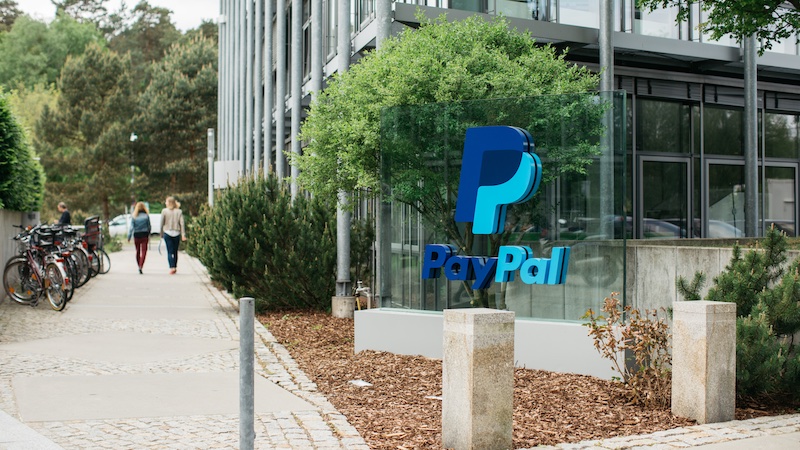This is how credible social media works in B2B
Social media engagement has become an integral part of the marketing mix of many companies of all sizes and industries in recent years. But while in the past it was mainly companies with a business area oriented towards end customers and a suitable business model that were active on LinkedIn, Facebook, Instagram and Co., B2B companies are increasingly discovering the potential behind them. Because even as a company with a B2B approach, it can make sense to use social media.
The working group “Social Media in B2B Communication” in Munich has also dedicated itself to the topic. PR consultant Jacqueline Althaller has been conducting a regular study on the subject together with the working group for 13 years now. More than 750 experts now regularly take part in what they say is the only long-term study in the DACH region that examines the communication behavior of companies in the B2B sector and contribute their experiences.
“The shift after the corona crisis in particular has shown that more and more companies are relying on cooperative management – which opens the doors for sustainable and authentic social media engagement in this segment,” explains Althaller. “Central communication is out, self-empowerment of employees is in,” she summarizes her observations.
Oliver Wegner, CPO and co-founder of Cofenster, a video solution to create videos yourself with reasonable effort, also believes that the question of whether social media also works in the B2B context is hardly ever asked anymore, but rather It is about how, given scarce resources, an acceptable and best possible result can be achieved in the company.
Editor’s Recommendations
It is therefore primarily a matter of identifying suitable business influencers within the workforce, who can appear in very different ways and tones for the company – from factual to casual, from trainee to CEO. The study showed that in about every third company, every employee is allowed to post for the company if he or she wants to (36.1 percent). In another 28.7 percent of the companies surveyed, only selected employees should do this, and in just 5.1 percent of the companies surveyed, they do not want employees to be professionally active in social media.
Above all, it is important to appear authentic and credible, to surprise with stories and to act consistently and authentically on social media tours. It doesn’t matter whether it’s a short post, a detailed story, podcast or video – it is crucial to show personality, to share insights and experiences. The dialogue must not be forgotten, the activity within the community.
Incidentally, the initiators of the study believe that the employees can certainly be trusted to act sensibly in the interests of the corporate culture if they are given the appropriate tools and provided with the appropriate know-how and coaching. Oliver Wegner also believes that many companies fail more because of the lack of resources and time than because of the willingness and skills of their employees. Because they are quite willing to speak for the company and their own employer – and they usually do this to customers and in real life anyway.
The task of the coordinating office should be to encourage employees to reflect their commitment and the associated impact and, last but not least, to have a common thread in the content strategy (and a resilient yet flexible editorial plan). It also makes sense to show and support when it comes to recycling content that has been created in a different form and making it accessible in different environments.
The corporate goals that can contribute to marketing are diverse anyway. Of course, it’s always about branding and visibility, i.e. making the brand and your own company known and increasing visibility. Even if the target group consists of other companies, a strong brand presence can ensure that someone is remembered and perceived as a trustworthy partner.
The entire topic of employer branding is also important in this context. “More and more jobs are being filled through direct communication between employees – also and especially via social networks,” says Oliver Wegner. “The HR department often only conducts the actual interview when the applicant has already noticed that a company could be a good fit for them.”
Basically, all of this is also about networking and building relationships. This is where companies whose products are not in the public domain and who, as medium-sized companies, tend to run under the radar, can benefit by coming into contact with other companies, industry experts and potential business partners. You can enter into relevant networks and cooperations. Ultimately, it is also about something like thought leadership, because by sharing relevant and high-quality content, experts can position themselves in their field and expand their sphere of influence.
Althaller emphasizes that companies can run the risk of competitors not only noticing the company, but also the specialist or manager. “The alternative would be that those dedicated and capable people with a high positive external impact only position themselves on social media.”
And finally, it is also about a kind of customer service and support that takes place in the social networks. In B2B, too, it is not unimportant that customers ask about features, give feedback or seek support. Anyone who reacts quickly and appropriately here and possibly establishes the right contact with the company not only scores points with their own customers in terms of loyalty, but also convinces third parties who notice.
Some figures from the last social media study show that more and more companies are now going this route: According to this, 81.2 percent of the companies surveyed are on Linkedin, 68.6 percent on Facebook and 58.8 percent on Instagram. More than every second company operates a YouTube channel (52.8 percent), followed somewhat by Xing and Twitter (with 38.8 and 34.1 percent). However, the development in this regard is interesting and rather unexpected: While Linkedin, as the top dog, remains an important channel for business social media in all three countries of the DACH region, the platform recently lost 14 percentage points in Germany and 22 percentage points in Switzerland. Instagram, on the other hand, is growing, which is growing significantly in both Germany and Austria. In addition, B2B companies invest twice as much time in Instagram as in the previous year – namely 56.3 percent.
After all, in 82 percent of the cases, the social media topics are coordinated by a central body, in most cases by the marketing department, management or a dedicated social media team. What is interesting in this context, however, is a difference that depends on the size of the company. While social media responsibility tends to be anchored in management in smaller companies, large corporations are increasingly relying on social media as an HR instrument and want to develop individual employees as company representatives and multipliers.
While the majority of industries rely on one to five employees, larger teams are often entrusted with this, especially in tourism and media companies, but also in management consultancies. After all, in 18 percent of the cases, external agencies and service providers support the in-house team with know-how. “The majority of the B2B companies surveyed are still convinced that agencies can provide good support in generating content,” explains Althaller. It is also about guidelines and coaching.
The analysis to that effect shows that B2B companies from the second row, in terms of awareness among applicants, can particularly gain here – with credible and honest content and by letting their (convinced and convincing) employees speak for themselves, as the Summarize the initiators of the study.
The next round of the long-term study “Social Media in B2B Communication” runs until August 1st. Participate can employees of B2B companies, who in return can have a summary of the results sent to them free of charge after their publication.



